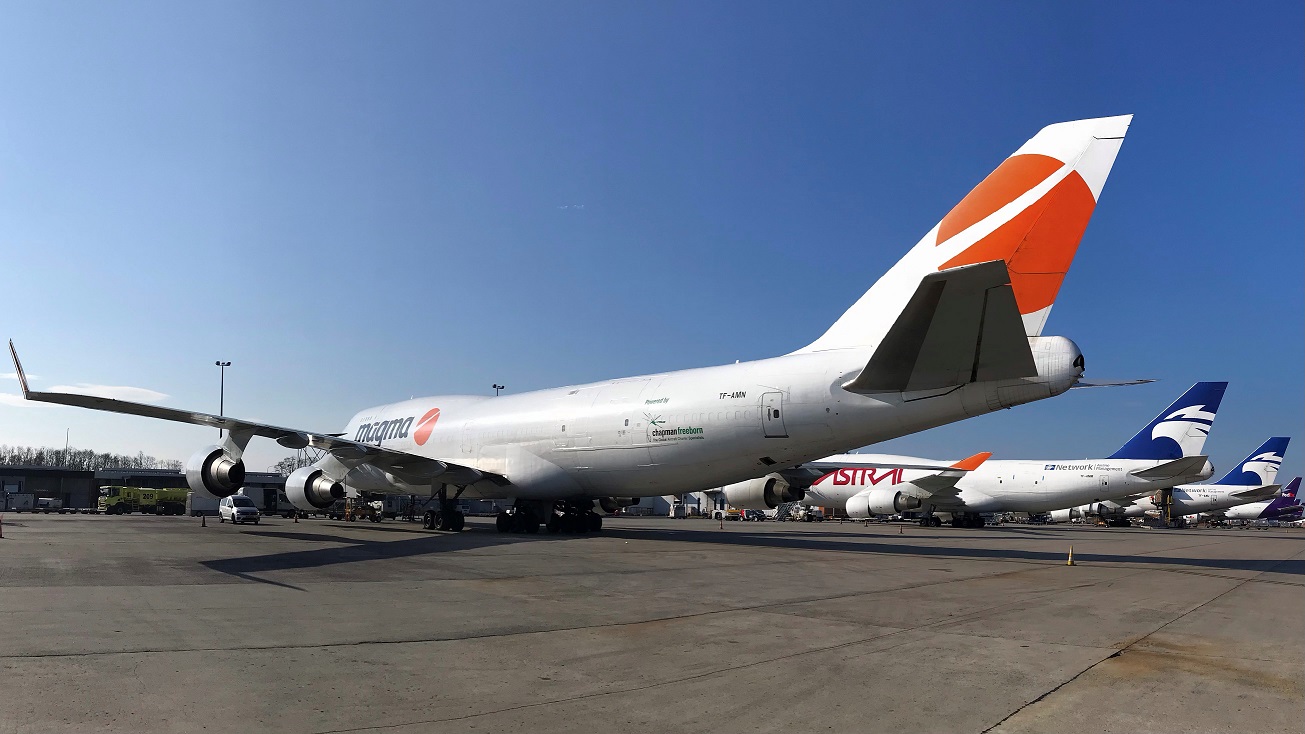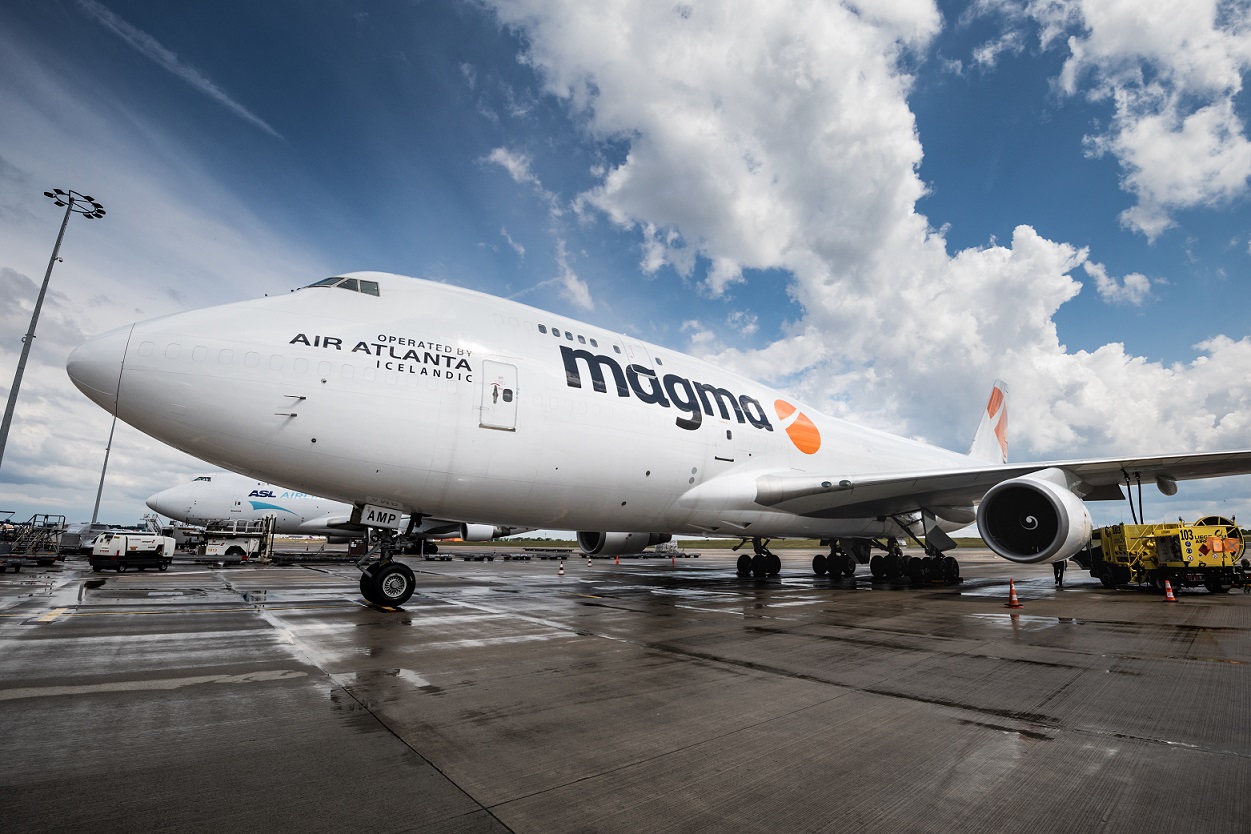Air Atlanta opens new chapter with move to 777s
05 / 05 / 2023

Baldvin Mar Hermannsson. Source: Air Atlanta Icelandic
Air Atlanta Icelandic is going against the grain at the moment. At a time when a soft market is accelerating the exit of older aircraft from the scene, the Iceland-based airline is reactivating three B747-400 planes. By June all three should be in action, says chief executive Baldvin Mar Hermannsson.
Those aircraft are not freighters. Their return marks the rising fortunes of the passenger business. The pandemic forced the Iceland-based ACMI carrier to curtail its passenger operations and focus primarily on the cargo market.
Despite the slower cargo demand recently, management has kept its radar tuned to opportunities to get hold of more 747 freighters. The fact that none have been added to the line-up recently has been due to a lack of suitable aircraft.
“We always monitor the market, but it needs to be the right aircraft at the right price at the right time,” says Hermannsson.
Carriers like FedEx have responded to the slower airfreight demand with an accelerated retirement of older planes.
Air Atlanta would like to get some relatively young 747s to replace some older aircraft, but it is not facing any pressure to cut back on capacity.
The downturn in the cargo business has not really affected the airline’s freighter operations, according to Hermannsson.
He views the current situation as an inevitable market correction that has dampened demand for capacity globally after an unsustainable two-year boom, but the airline’s freighters are all tied up in long-term agreements.
None of these are due to expire before late in 2024, he says, adding: “It’s been years since we last signed a three-month contract.”
Management has been in continuous contact with clients and other players in the market but customers have not pushed to change contract terms in response to the recent decline in demand and rates, he says.
“There is less appetite for exposure and risk today. People are certainly more cautions, but our customers have had a sensible, cautious approach,” he remarks.
“We didn’t base contracts on market conditions then. Agreements need to make sense for both parties in good and in softening times. We try to maintain a long-term, holistic approach.”
Charter reduction+
This strategy entailed a reduction of Air Atlanta’s exposure to the charter market, despite the frothy pricing between the summer of 2020 and last summer.
“We’re not doing much ad hoc business but try to set up as much long-term as we can. You can benefit with ad hoc when markets are strong, but we’ve taken a rather cautious, long-term approach,” Hermannsson says.
In addition to its focus on ACMI, the airline has stepped up its activities in the CMI segment.
“We’ve been doing more and more CMI operations,” says Hermannsson, noting that demand for this appears to be continuing to grow. Currently Air Atlanta is operating six aircraft under CMI deals.
This calls for a solid supply of flight crews. The pilot shortage has been a persistent problem for the industry, but Air Atlanta has not found it difficult to recruit enough pilots to man its own fleet and third-party aircraft.

Source: Air Atlanta Icelandic
“Our pilot pool is growing. We have done well with recruiting and type rating for 747 flying,” Hermannsson says.
It helps that the company has its own B747 flight simulator, which it acquired from British Airways in 2021, after the British carrier had retired its last 747 aircraft.
Pilot recruitment has also been in full swing for Air Atlanta’s imminent move into a new segment of the market.
The airline is on the cusp of a strategic shift in its fleet to a new aircraft type, having taken delivery this spring of two B777-300ERs. The pair are due to be in operation for Air Atlanta starting in June.
For Air Atlanta’s management the adoption of these two planes ushers in the 777 as a strategic platform going forward.
“This opens the door for additional 777s – passenger or cargo,” says Hermannson. “Our first 777s are a huge milestone for Air Atlanta. It is an aircraft that we have big aspirations for, both in freight and passenger operations. The 777 opens a market segment that has been closed for us.”
For the near future, the 747 will remain the leading aircraft type for the company, with its payload and nose loading capabilities occupying a niche in the market that other types cannot cover, but in the long run, the aircraft will disappear and its role for Air Atlanta will be taken over by the 777.

Source: Air Atlanta Icelandic
“In the long term this is a huge shift in our fleet structure. We will supplement the 747 and over time replace it with 777s and A330s . That’s our long-term strategy,” says Hermannsson.
Originally the airline’s management had anticipated the strategic shift to both the 777 and the A330 in 2020, when it had made commitments for both types, but those opportunities were buried by the Covid outbreak.
As revenues from passenger operations collapsed, the company shifted its focus more to the cargo market and added 747-400 freighter capacity to the fleet.
It went from five 747 cargo planes in early 2020 to 14. Three 747s joined the line-up last year.
Availability challenge
The recovery of the international passenger markets has tightened the availability of widebody types, especially 777s and A330s. Air Atlanta operated B767s in the past, but Hermannsson currently sees no future for the type in its business plan.
With its chosen twin-engine planes less readily available than two years ago, the build-up of these fleets will not be swift, and conversions will play a role in the process.
“There is less availability of quality aircraft. Capacity is certainly tighter,” remarks Hermannsson. “It would certainly make sense to go for conversions. There are a few companies working on 777s, and IAI are highly experienced and the furthest ahead. We follow those options closely. They definitely would be of interest to us.”
He does rule out the ‘e-freighter’ version of the 777, which does without reinforcement of the floor or cutting a cargo door. “It is not on the cards for us,” he comments.
Besides expanding its fleet, Air Atlanta is looking to leverage its Malta-based offshoot, Air Atlanta Europe. It was established in 2021 primarily to give the company a leg inside the European Union (EU).
Being based in Iceland meant constraints in traffic rights that limited the potential scope of activities.
“For example, it is difficult with traffic rights between China and Europe,” Hermannsson says.
By this summer Air Atlanta will have seven aircraft on the Maltese registry able to make use of traffic rights between the EU and other jurisdictions.
“We’re slowly building it up, but there is no plan of moving the entire operation out of Iceland,” he stresses. “Our roots are here, our headquarters, many of our staff. The airline is not just about the aircraft, it’s much rather our people, the experience, quality and know-how they bring to the table every day.”














